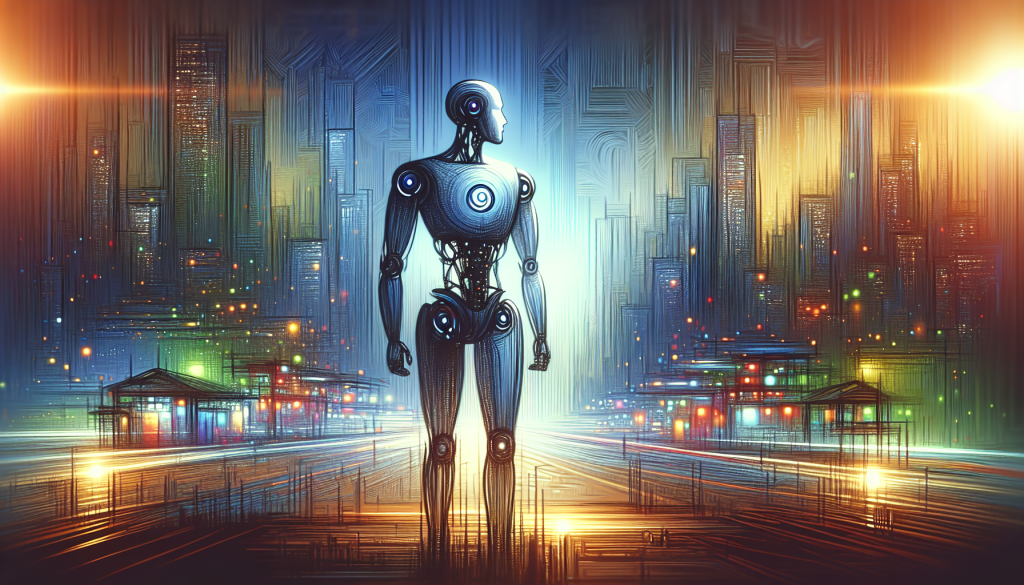Machine learning has become a critical tool in today’s technological landscape, revolutionizing industries across the globe. In fact, the potential of machine learning goes far beyond just making our lives more convenient – it has the power to create an astounding 60 million new jobs by 2024. With its ability to analyze vast amounts of data and make accurate predictions, machine learning is driving innovation and transforming traditional job roles. This article explores the exciting possibilities and impact of machine learning on job creation, highlighting the immense opportunities waiting to be unleashed in the near future.
Unleashing 60 Million New Jobs by 2024: The Job Creation Potential of Machine Learning
Advancements in Machine Learning Technology
Machine learning, a branch of artificial intelligence (AI), has witnessed significant advancements in recent years. This technology enables computers to learn from and analyze large amounts of data, uncover patterns, and make predictions or decisions without explicit programming. The rapid progress in machine learning algorithms, coupled with the availability of vast amounts of data, has created immense potential for job creation across various industries.
Increasing Integration of Machine Learning in Industries
Industries around the world are recognizing the transformative power of machine learning and are increasingly integrating this technology into their operations. From healthcare to finance and manufacturing to transportation, the applications of machine learning are diverse and promising. As organizations harness the power of algorithms and data, they are able to automate tasks, improve efficiency, enhance decision-making, and create new opportunities for growth.

Industry-Specific Applications of Machine Learning
Sectoral Job Creation: Manufacturing
Machine learning is revolutionizing the manufacturing sector by enabling predictive maintenance, quality control, and supply chain optimization. Through the analysis of sensor data, manufacturers can anticipate equipment failures, reduce downtime, and prevent costly breakdowns. This technology also facilitates real-time monitoring of production processes and identification of anomalies, contributing to improved product quality.
Sectoral Job Creation: Healthcare
In the healthcare industry, machine learning has tremendous potential to improve patient care, disease diagnosis, and treatment outcomes. By analyzing vast amounts of patient data, machine learning algorithms can identify patterns that might go unnoticed by human physicians, leading to faster and more accurate diagnoses. Additionally, this technology can help healthcare providers personalize treatments, monitor patient progress, and develop preventive strategies based on individual patient profiles.
Sectoral Job Creation: Retail
Machine learning is reshaping the retail industry by enhancing customer experience, optimizing inventory management, and enabling personalized marketing strategies. Through the analysis of customer data, such as purchase history and browsing behavior, retailers can offer personalized product recommendations, targeted promotions, and tailored shopping experiences. Furthermore, machine learning algorithms can optimize inventory levels, predict demand patterns, and streamline supply chain operations.
Sectoral Job Creation: Finance
In the finance industry, machine learning is transforming operations in areas such as risk management, fraud detection, and investment strategies. By analyzing historical financial data and market trends, machine learning algorithms can identify patterns that indicate potential risks and enable proactive risk mitigation. This technology also helps financial institutions detect fraudulent activities by identifying unusual patterns in transactions. Moreover, machine learning algorithms can analyze vast amounts of data to generate investment recommendations and optimize portfolios.
Sectoral Job Creation: Transportation
The transportation industry is being revolutionized by machine learning through applications such as autonomous vehicles, route optimization, and demand forecasting. Machine learning algorithms enable vehicles to perceive their environment, make decisions in real-time, and navigate safely. This technology also facilitates the optimization of routes for logistics companies, reducing fuel consumption and improving delivery efficiency. Additionally, by analyzing historical transportation data, machine learning algorithms can forecast demand patterns, enabling resource allocation and efficient planning of transportation services.
Sectoral Job Creation: Education
Machine learning is increasingly being integrated into the education sector to personalize learning experiences, provide adaptive feedback, and facilitate administrative tasks. By analyzing student data, machine learning algorithms can identify individual learning patterns, tailor educational content, and provide customized recommendations. This technology also assists educators in assessing student performance, providing timely feedback, and identifying areas where additional support is needed. Furthermore, machine learning can automate administrative tasks, such as grading and scheduling, freeing up educators’ time to focus on teaching and mentoring students.
Supporting Job Creation through Machine Learning Education and Training
In order to fully realize the job creation potential of machine learning, it is essential to provide education and training opportunities for individuals to acquire relevant skills. With the increasing integration of machine learning in industries, there is a growing demand for professionals with expertise in this field. Educational institutions, industry leaders, and governments need to collaborate to develop comprehensive training programs that equip individuals with the necessary knowledge and skills to contribute to the machine learning revolution.
Challenges and Limitations to Job Creation
While the potential for job creation through machine learning is immense, there are also challenges and limitations to consider. One challenge is the displacement of certain jobs that can be automated by machine learning technologies. As certain tasks become automated, individuals in those roles may need to reskill or transition into new job roles. Additionally, concerns regarding data privacy and security need to be addressed to ensure the responsible and ethical use of machine learning technologies.
In conclusion, the job creation potential of machine learning is substantial and far-reaching. Advancements in machine learning technology, coupled with its increasing integration in various industries, are opening up new avenues for job creation. From manufacturing to healthcare, finance to transportation, and retail to education, machine learning is revolutionizing operations and presenting exciting opportunities for economic growth. However, to fully unleash this potential, it is crucial to invest in education and training to equip individuals with the necessary skills, address challenges, and ensure responsible and ethical use of machine learning technologies. By doing so, we can unlock the promise of unleashing 60 million new jobs by 2024.





